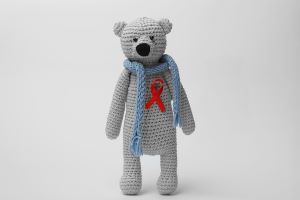 A new study published in the Journal of Acquired Immune Deficiency Syndromes looked at longitudinal outcomes in children with HIV-associated neurocognitive disorders in Zambia.
A new study published in the Journal of Acquired Immune Deficiency Syndromes looked at longitudinal outcomes in children with HIV-associated neurocognitive disorders in Zambia.
“Our study is about cognitive development in children and adolescents with HIV,” study author David Bearden told us. Bearden is an assistant professor of Neurology and Pediatrics at the University of Rochester Medical Center. “We were hoping to find out whether HIV is associated with impaired cognitive development; whether differences in cognition between children with HIV and without HIV change over time; and to see if we could identify predictors of worse cognitive performance in children with HIV.”
Researchers expected that children with HIV would do worse on cognitive tests than children without HIV, as this has been seen in other studies. They hypothesized that markers of worse HIV-related disease, such as having a history of a low CD4 count or opportunistic infections, would predict worse cognitive performance.
“I have been working with children and young adults with HIV since before I attended medical school,” Beardon told us. “As a neurologist working in Sub-Saharan Africa for the past 15 years, I became very interested in neurologic complications of HIV. As children with HIV are now surviving into adulthood and living relatively normal lifespans (as long as they take antiretroviral therapy), cognitive and psychiatric comorbidities of HIV have become important considerations.”
The HANDZ study is a prospective cohort study comparing children with HIV to children without HIV in Lusaka, Zambia. In this study, researchers followed children with HIV and measured cognition at baseline and every three months for a two-year period. They measured cognitive function using computerized testing with a tool called the NIH Toolbox cognition battery, and they interviewed children and their parents about potential risk factors.
“Children with HIV performed worse than children without HIV on a wide range of cognitive tests,” Beardon told us. “These differences were stable over a two-year period; that is, children with HIV didn't get any worse compared to children without HIV, but they also didn't catch up.”
Researchers identified two major groups of risk factors for poorer cognitive function; first, as expected, children who have gotten very sick with HIV tend to worse cognitively. The second piece, which was somewhat more surprising, was that markers of chronic malnutrition is another strong predictor of poor cognitive outcomes.
“The reason this is somewhat surprising is that all of these children are followed in a major referral center with programs that already exist to help address malnutrition, and all of these children were treated with antiretroviral therapy,” Beardon told us. “Despite these children being in general well-cared for and followed closely by a specialty HIV clinic, many of the children still had markers of chronic severe malnutrition, and this strongly predicted poor cognitive outcomes.”
Researchers believe the study presents important key lessons, the first being that cognitive complications of HIV continue to be a major issue, even in the era of widespread availability of antiretroviral drugs.
“I was not surprised that children with HIV did worse than children without HIV on measures of cognition, and that markers of HIV disease severity predicted cognitive outcomes,” Beardon told us.
“I was somewhat surprised that these differences were so stable over a two year period. And I was surprised by the strength of the association between malnutrition and cognitive outcomes in this population.”
Second, the most important thing that can be done to prevent these differences is to identify children with HIV early, get them on antiretroviral therapy, and maintain adherence throughout their lifespan.
“Finally, I think we need to look into the malnutrition piece more closely, and figure out if nutritional interventions might narrow the gap between children with and without HIV.”
Patricia Tomasi is a mom, maternal mental health advocate, journalist, and speaker. She writes regularly for the Huffington Post Canada, focusing primarily on maternal mental health after suffering from severe postpartum anxiety twice. You can find her Huffington Post biography here. Patricia is also a Patient Expert Advisor for the North American-based, Maternal Mental Health Research Collective and is the founder of the online peer support group - Facebook Postpartum Depression & Anxiety Support Group - with over 1500 members worldwide. Blog: www.patriciatomasiblog.wordpress.com
Email: tomasi.patricia@gmail.com